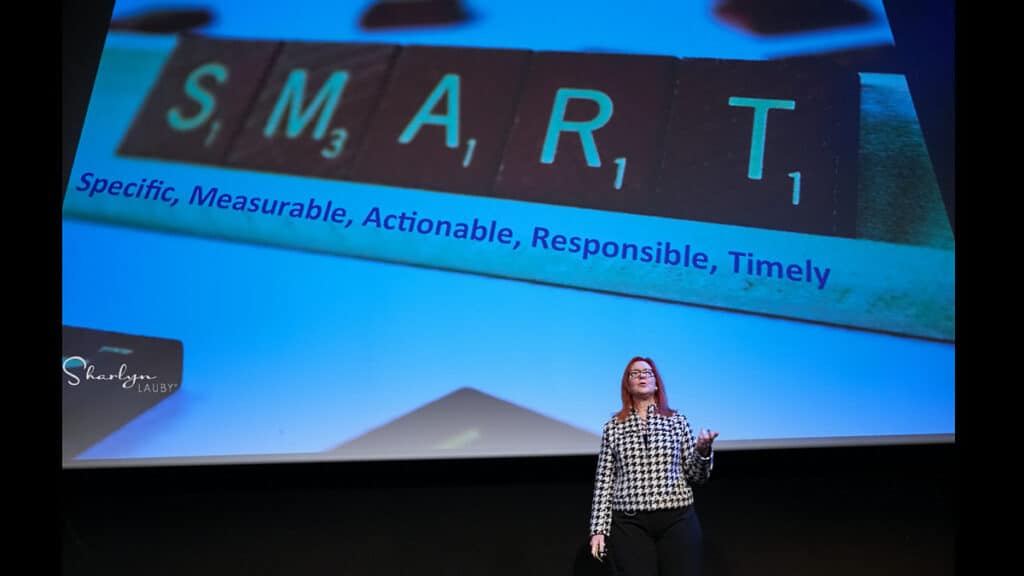Use SMART Plans to Create Actionable Goals

When I attend conferences, one of the things that frustrates me is when the speakers present a topic and, in the final couple of minutes of the session, they say something to the effect of “…and I challenge each of you to leave this session and create your own personal action plan to…” do whatever is that they’re suggesting we do. Frankly, they should also include in their presentation how to create the action plan.
As a result, and to minimize my frustrations, I’ve learned that every time a speaker issues one of these challenges that I should try to work it into a SMART plan. I’ve mentioned before how much I love SMART plans and find it to be a very flexible way to set goals and hold myself accountable.
I will admit that I haven’t always felt this way about SMART plans. I once worked for a company that every time something went wrong, our CEO wanted a SMART plan explaining how we were going to fix it. Sad to say, we developed a lot of SMART plans. Back then, I thought it was some sort of punishment. It wasn’t until I started studying for my professional certification that I realized SMART plans have been around for many years and weren’t some dreamt up form of torture from senior management.
If you’re not familiar, SMART is an acronym:
Specific is a statement of exactly what you would like to accomplish. Think of it as the who, what, where, when, which and why of the goal.
Measurable answers the question of success will be measured.
Achievable outlines the steps that it will take to complete the goal. Some people call this step “attainable”.
Responsible assigns accountability to each step of the process. Instead of responsible, some people label this step as “relevant” or “realistic” to answer the question of goal importance (i.e. relevant and/or realistic).
Time-bound (some versions use “trackable”) identifies the time frame to achieve the goal.
Over the years, I’ve found the SMART acronym easy to remember so I mold it for setting my personal goals and even use it for creating meeting minutes. I can’t think of a better way to document meeting discussions:
Specifically, what are we going to do? (Specific)
How will we measure our success? (Measurable)
What are the steps that will help us attain our goal? (Attainable)
Who will be responsible for each step? (Responsible)
When will the task be completed? (Time-bound)
Using the SMART plan for meeting minutes also helps me steer the conversation toward key discussions like “We have a great idea here…now who’s going to take ownership for getting it done?” And “Thanks Jose for leading this task, when can we expect it to be completed?”
So, the next time someone challenges you to develop an action plan, think about giving SMART plans a try. Anyone using another method to create personal action plans? Share what works for you in the comments.
Image of Sharlyn Lauby speaking at the Flora Icelandic HR Management Conference in Reykjavik, Iceland
14